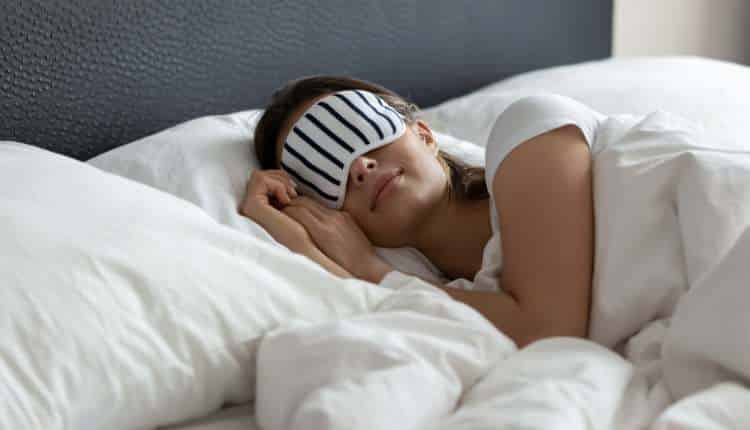
Sleep is a fundamental aspect of human life, which is a primary element for a person’s general health.
In this article, we will explore those factors that make achieving a good night’s sleep easier, hence people will get their rest and wake up feeling refreshed and rejuvenated.
The Importance of Quality Sleep
Before we take a closer look at the methods of creating a conducive sleep environment, it is important to understand what determines a person’s sleep quality. Some of the roles of sleep in the body are:
- Regrowing and healing tissues in the body.
- Store and recall information.
- Control body functions using signaling processes.
- Boost the immune system.
- Give you the ability to concentrate in a superior way.
Scarcely any person can contest that a good night’s sleep and resilient physical health, clear mind, and emotional stability are indeed interlinked.
Creating the Ideal Sleep Environment
Certainly, one of the most vital components in ensuring a perfect night’s sleep is sleep conditions. Here are some key factors to consider:
1. The Right Mattress
A high quality, adjustable mattress is essential for getting a good night’s sleep. Such mattresses come with a lot of advantages:
- Adjustable comfort levels to the individual’s choice.
- Ability to change positions for comfortable and Painless sitting and sleeping.
- Proper spine support.
- Diminishing problem areas.
A good investment in a high-quality, adjustable mattress results in high sleep quality and exceptional comfort in general.
2. Optimal Room Temperature
The preferred temperature is cool, which is between 60-67°F (15-19°C) for sleep for most individuals. A cold surrounding that helps the body to lower its temperature during sleep leads to better sleep.
3. Darkness and Light Control
Good sleep is more likely to occur in a dark room. For making a dark environment, blackout curtains or an eye mask do the work. Also, exposure to natural light during the day while blue light from electronic devices should be lessened can reset the body’s circadian rhythm.
4. Noise Management
Weekly lessons with stories, insights, and practical guidance to help you step beyond ordinary routines and awaken deeper awareness in daily life.
👉 Read a Sample Inner Awakening lesson
Sourcing a quiet surrounding in the bid to get some rest is crucial. If silence is not possible and earplugs might be out of the question, you can use white noise machines to cover unpleasant noises.
Establishing a Consistent Sleep Schedule
A regular sleep schedule is crucial for good quality sleep. So what do you actually do?.
- Committing to a specific time to go to bed and wake up, ensuring you follow through it on a daily basis, weekends included.
- Having a simpler bedtime plan to rub the system correctly.
- Keeping away from any activities that may obstruct the sleep process in the last hour of the day.
The Role of Diet and Exercise
A person’s sleep habits are significantly affected not only by the way she or he consumes foods and the way she or he exercises, but also by the amount of both:
Diet
A range of items and drinks can upset sleep:
- Stay away from the drinks that contain caffeine in the afternoon and the night.
- Why not take a small amount of drink to relax yourself and then go to bed, however, it can lead to sleeping that isn’t deep or is in several episodes during the night.
- Avoid large meals at the end of the day, as discussed earlier.
You may consider consuming sleep-inducing foods rich in vitamins B6, magnesium, and melatonin.
Exercise
Exercising regularly may lead to high sleep quality. Timing plays a major role in this matter, however:
- Having a physical activity or two during the day, which is not very intense, is something that you should do.
- Stay away from the heavy workouts at least two hours before you go to bed.
- Enjoying calming activities like stretching and yoga in the night may be a good idea.
The Power of Sleep Hygiene
The term sleep hygiene denotes all the practices, behaviors, and environment that are suitable for getting proper and healthy sleep on a regular basis. The inclusion of sleep hygiene is good and involves:
- Keeping a consistent sleep schedule.
- Creating a relaxing bedtime routine.
- Avoiding stimulants like caffeine and nicotine close to bedtime.
- Exercising regularly, but not too close to bedtime.
- Structuring your bedroom environment to establish the right setting for sleep.
Conclusion
The process of balancing sleep is a diverse one and includes setting aside the right place, cultivating healthy practices, and blocking risks in the way.
A good quality, adjustable bed, keeping a regular timetable for sleep, as well as activities for body and mind, along with reducing stress, will lead to many enhancements in sleep.
Good sleep is not an extra but an inevitable part of the complete maintenance of your body and good health as a whole. With a bit of resolve and patience, anyone can make the journey towards their body’s perfect sleep possible.
One can change their nights and, therefore, their days by focusing on sleep and incorporating the techniques explained above. The path to improved sleep, the satisfaction of a well-rested and revitalized morning, more than compensates for the trouble. Here’s to many nights of revitalizing, peaceful, and well-slept sleep!

